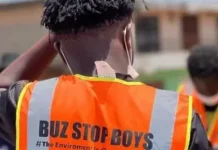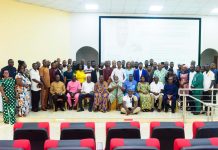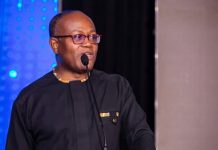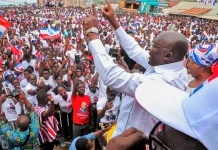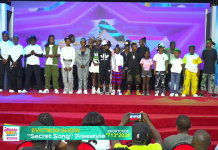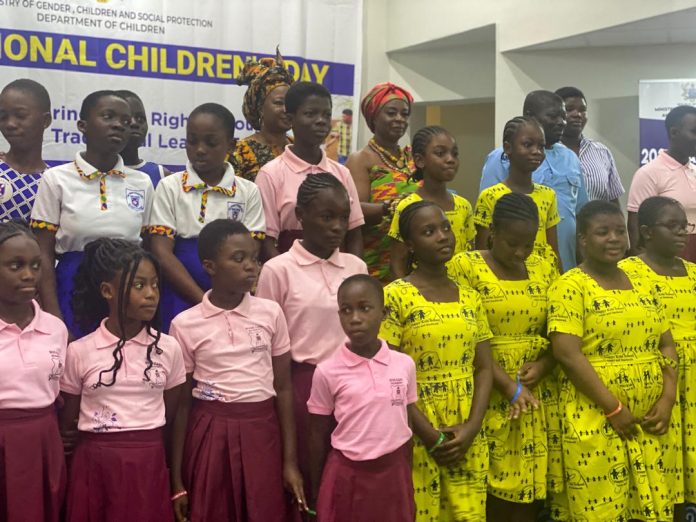The Minister for Gender, Children and Social Protection, Darkoa Newman has urged cultural, traditional and community leaders to use their platforms to protect the rights of children.
She said this at a forum to commemorate the 2024 National Children’s Day held in Accra.
The Department of Children of the Ministry of Gender Children and Social Protection marked the 2024 National Children’s Day Celebrations in Accra on Thursday, September 12,2024.
The National Children’s Day celebrations was established on August 31, 1979 and has since been an annual commemoration day.
This commemorative day aims to underscore the significance of safeguarding and advancing the interests of Ghana’s children.
The National Children’s Day in Ghana emphasizes the importance of nurturing and developing the nation’s young citizens, while also upholding the principles enshrined in the United Nations Convention on the Rights of the Child.
The theme for the 2024 National Children’s Day celebration was, “Building Bridges: Fostering Child Rights Through Cultural, Religious and Traditional Leadership.”
It brought students, stakeholders and partners together to identify challenges children face in Ghana and ways to address them.
At the event, it was made known that the key challenges children face in Ghana are child marriage and child labour.
The stakeholders called on the public to come together to play their role to fight for the rights of children.
Speaking at the event, the Gender Minister, Darkoa Newman noted that despite government’s best efforts, many Ghanaian children continue to suffer from practices that rob them of their childhood and their future.
Some of these challenges, she admited was child marriage.
Darkoa noted that according to UNICEF, one in five girls in Ghana is married before the age of 18, adding that these young girls, who should be in school, dreaming about their futures, are instead thrust into adult responsibilities.
The consequences, she said, are devastating, ranging from health complications to the denial of education and the perpetuation of poverty.
“In our fight to end child marriage, we appeal to our cultural and religious leaders to be champions of this cause. By speaking out against this harmful practice, you can help shift societal norms and protect our girls from being forced into marriages that compromise their well-being,” she stated.
Again, the Gender Minister noted that the education of girls and keeping them in school is a critical issue for the future of Ghana.
She questioned,”How can we expect our girls to stay in school when something as simple as crossing a river prevents them from attending because they are menstruating?”
More alarmingly, Darkoa Newman said that statistics from 2021 reveal that over 482,000 girls are out of school due to issues like exchange marriage, betrothal, early marriages, poverty and challenges related to menstrual hygiene.
“Although the traditional preference for educating boys over girls has diminished, menstruation and the lack of proper sanitation facilities in schools continue to hinder girls’ education,” she added.
Darkoa Newman said another pressing issue is child neglect, adding that when children are deprived of the love, care, and protection they need, the consequences can be devastating.
“Whether through parental absence or the lack of basic necessities, many children in our communities face neglect, leaving deep emotional and physical scars. Addressing child neglect requires a multifaceted approach. We must strengthen the family unit, promote responsible parenting, and provide support systems for vulnerable families. Once again, cultural and religious leaders have a crucial role to play in fostering communities that care for one another and ensuring that no child is left behind,” she stated.
She again stated,”We must ask ourselves, how can we, as a society, allow these challenges to persist? The answer lies in the power of our collective will. By harnessing the influence of traditional and religious institutions, we can advocate for stricter enforcement of child protection laws and promote education as a fundamental right for every child.”
She continued,”To our esteemed traditional, religious, and community leaders, I urge you to continue using your platforms to champion child rights. Your teachings, decisions, and actions have the potential to shape the direction of our society. Let us work together to ensure that our cultural practices and religious beliefs are used not to justify the violation of children’s rights but to protect and uplift them.
For her part, the Development Queenmother of Afigya-Kwabre district in the Ashanti Region of Ghana, Nana Adwoa Awindor also called on parents, traditional leaders and all stakeholders to come together to fight child marriage and child abuse.
She again urged traditional leaders to allow the law to take its course when perpetrators are arrested.
Ghana |Atinkaonline.com | Porcia Oforiwaa Ofori


